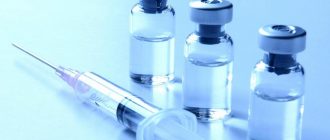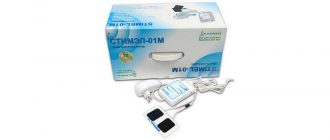Bacterial prostatitis is an inflammatory disease of the prostate gland, which, if left untreated, can lead to multiple complications, including prostate cancer and infertility. The main reason for the development of the disease is the penetration of bacteria into the organ and weakening of the immune system, as a result of which they multiply uncontrollably. The main therapeutic method is antibiotics.
Causes
The causes of bacterial prostatitis include several factors:
- bacteria infect the prostate or the possibility of their penetration into the organ increases;
- accompanying conditions under which the immune system is unable to suppress their reproduction, which leads to an acute inflammatory process.
The main causative agents of prostatitis:
- E. coli (about 80% of the total number of cases);
- staphylococci;
- enterococci;
- proteas;
- Pseudomonas aeruginosa;
- chlamydia;
- Trichomonas;
- Klebsiella
The pathogen can only be identified through diagnostic procedures, regardless of the type of infection - the symptoms of the disease are the same. But most of these microorganisms are opportunistic, that is, during normal functioning of the body they do not cause pathologies.
Bacteria cause prostatitis under one or more accompanying conditions:
- weakened immunity, especially with immunosuppressive diseases such as HIV, diabetes mellitus;
- stagnation due to a sedentary lifestyle, rare or interrupted sexual intercourse;
- with prostate adenoma;
- hormonal imbalances;
- impaired urine output;
- frequent change of sexual partners;
- abuse of alcohol and nicotine products;
- hypothermia;
- previous surgery;
- frequent stress and overwork;
- poor nutrition;
- injuries in the groin area.
Bacteria enter the prostate in the following ways:
- Through the rectum.
- Through the circulatory system.
- Through the urinary system.
Symptoms of acute and chronic stages
Signs of acute bacterial prostatitis are expressed by a sharp deterioration in health, which is manifested by the following symptoms:
- increased temperature, chills, or fever;
- pain in the groin, scrotum, anus;
- frequent urge to urinate, weak stream, painful sensations during the process, feeling of incomplete emptying after;
- there may be blood or mucus in the urine and semen;
- deterioration of potency and pain during ejaculation;
- weakness, fatigue.
The symptoms of chronic bacterial prostatitis are the same, but somewhat blurred; there may be periods of relief or exacerbation.
Diagnostics
To make a diagnosis, the doctor first takes an anamnesis and conducts a primary examination. Usually they are enough to suspect inflammation of the prostate gland. Next, more accurate diagnostic methods are prescribed:
- Blood test (for hormones and infections).
- General urine and stool tests.
- Ultrasound of the pelvic organs.
- Spermogram.
- Palpation of the prostate gland.
- Microscopy and bacterial culture of prostate secretions.
The most important diagnostic information is provided by bacterial culture, because it is it that identifies a specific infection and its sensitivity to various groups of antibiotics, and this is most important for successful treatment.
Treatment methods
Treatment of prostatitis of bacterial origin is complex; the following types of therapy can be prescribed:
- Taking medications (primarily antibiotics, also NSAIDs, immunostimulants, vitamins).
- Physiotherapeutic procedures.
- Therapeutic diet and preventive measures.
- Traditional methods.
- Surgical intervention.
It is also possible to use traditional methods of treatment, but only with the approval of a doctor.
Antibacterial therapy for prostatitis
Treatment of bacterial prostatitis in men with antibiotics is prescribed after bacterial culture of prostate secretions. It shows the presence of pathogenic microorganisms and makes it possible to test the effectiveness of various groups of drugs on them. The most effective ones are subsequently prescribed to the patient. This is done because in bacterial inflammation of the prostate, viruses very often have high resistance to broad-spectrum antibiotics, which is why in some cases several groups of drugs may be prescribed at once. The most commonly prescribed antibacterial drugs for the treatment of prostatitis:
- Zanotsin;
- Levofloxacin;
- Amoxiclav;
- Augmentin;
- Suprax;
- Pantsef;
- Azitro Sandoz;
- Azithromycin;
- Zithrocin.
It will not be possible to cure the disease without antibiotics; this can only lead to a chronic form of the disease and further complications.
Physiotherapeutic procedures
To cure chronic bacterial prostatitis, physiotherapeutic procedures are often prescribed as a complex treatment or for the sake of prevention, this can be:
- Electrophoresis.
- Magnetotherapy.
- Electrical stimulation.
- Ultrasound therapy.
- Laser therapy.
In case of bacterial inflammation of the prostate, prostate massage, heating, hot baths and baths are prohibited.
Preventive measures
The following measures are recommended as prevention:
- Lead a more active lifestyle.
- Among sports exercises, cycling or exercise bike, walking are recommended. When working sedentarily, take breaks once an hour to take a few steps, this will also improve blood circulation. Kegel exercises are also very helpful.
- Do not ignore the natural urge to urinate.
- Avoid hypothermia.
- Regular sex with a regular partner.
- To give up smoking.
- An annual examination by a urologist (especially after 40 years).
Diet
It is equally important to follow a healthy diet. Its main principles:
- exclusion of fried, spicy, smoked and salted dishes; preference should be given to boiled, stewed or steamed dishes, products made from lean fish;
- an increase in the diet of vegetables and fruits;
- minimizing the spices used;
- avoiding alcohol, coffee and carbonated drinks; preference should be given to clean water, tea, and fruit drinks.
Traditional methods
The most effective folk remedies for bacterial prostatitis are pumpkin, walnuts and honey. With them, you can prepare various versions of decoctions and tinctures, or consume them in their pure form, including them in the diet.
The most effective herbs for treating bacterial prostatitis are calendula, nettle, celandine, sage and plantain.
Surgery
It is prescribed only in the most advanced cases of the chronic form of the disease. Used if drug treatment (in combination with other measures) does not produce positive results. The use of partial resection of the prostate gland can lead to enuresis, infertility, and impotence.
Possible complications
In the absence of treatment or its incomplete success, the disease leads to the following complications:
- chronic form;
- adenoma;
- development of purulent processes;
- oncology;
- infertility.



